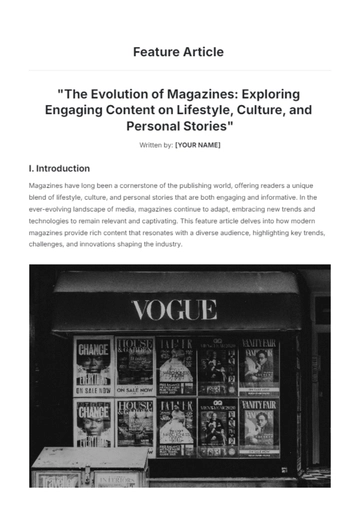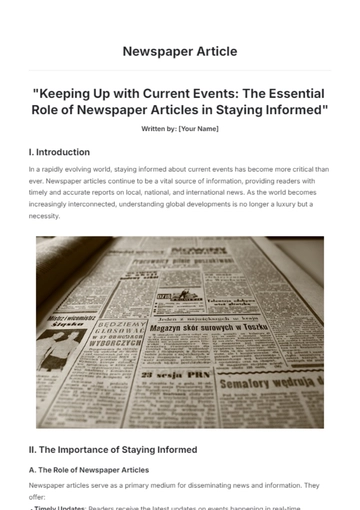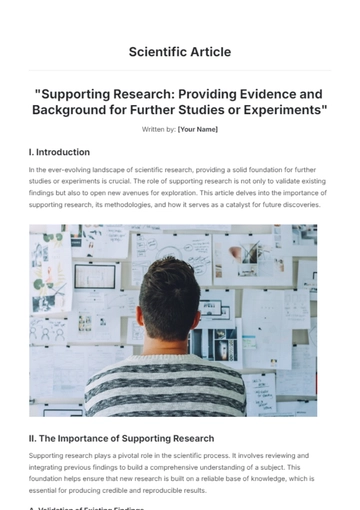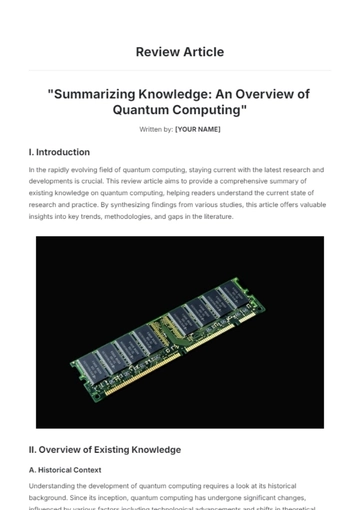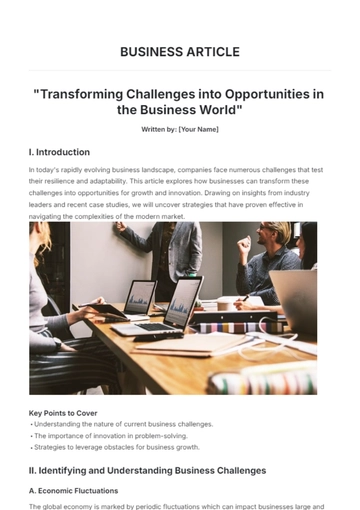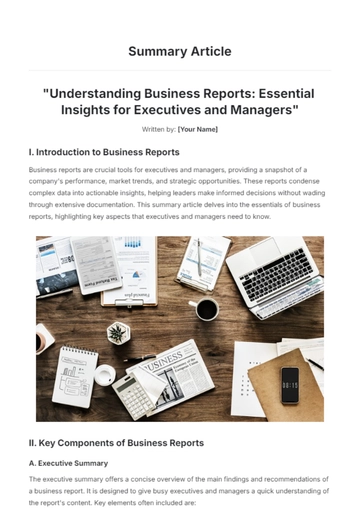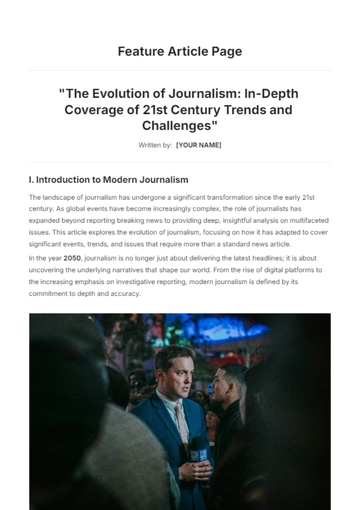Free Opinion Article
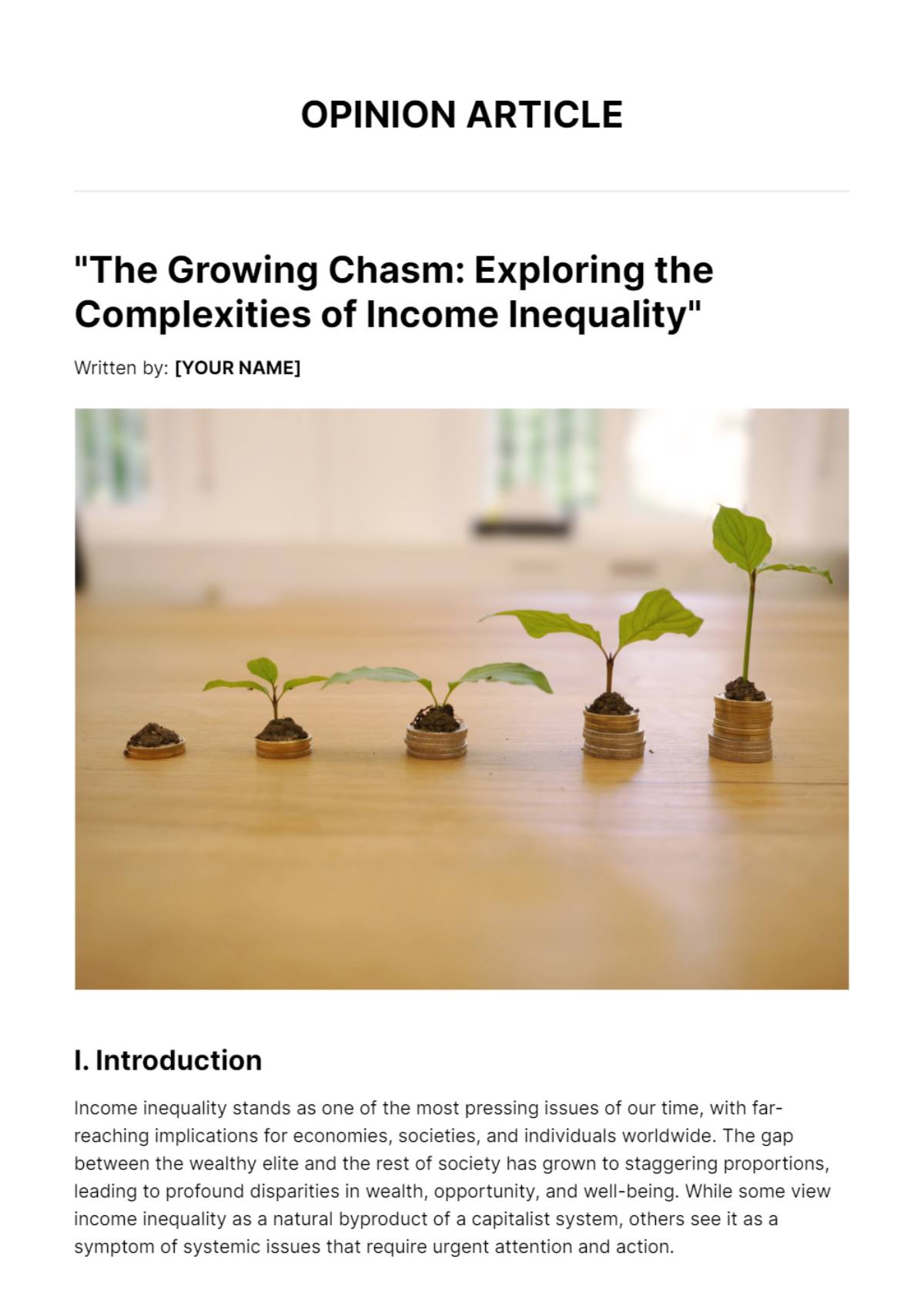
"The Growing Chasm: Exploring the Complexities of Income Inequality"
Written by: [YOUR NAME]

I. Introduction
Income inequality stands as one of the most pressing issues of our time, with far-reaching implications for economies, societies, and individuals worldwide. The gap between the wealthy elite and the rest of society has grown to staggering proportions, leading to profound disparities in wealth, opportunity, and well-being. While some view income inequality as a natural byproduct of a capitalist system, others see it as a symptom of systemic issues that require urgent attention and action.
II. The Causes Behind the Divide
The factors contributing to income inequality are multifaceted and interconnected, including:
Technological Advancements: The rapid pace of technological innovation has led to automation and the replacement of human labor with machines, particularly in manufacturing and service industries. This has resulted in job losses and reduced bargaining power for low-skilled workers.
Globalization: The opening of markets and the ease of capital flow across borders have benefited certain industries and individuals while leaving others behind. Globalization has led to the outsourcing of jobs to countries with lower labor costs, contributing to wage stagnation in developed economies.
Policy Choices: Tax policies, labor laws, and regulations play a significant role in shaping income distribution. Policies that favor the wealthy, such as tax cuts for the rich and deregulation of the financial sector, have contributed to widening income disparities.
Education and Skills Gap: Disparities in access to quality education and skills development opportunities have perpetuated income inequality. Those with higher levels of education and specialized skills tend to command higher salaries, widening the income gap.
III. The Impact on Society
The effects of income inequality are profound and wide-ranging, including:

Economic Instability: High levels of income inequality can lead to economic instability, as it reduces consumer purchasing power and can lead to financial crises. Countries with high levels of income inequality tend to experience lower and less sustainable economic growth.
Social Cohesion: Widening income gaps can strain social cohesion, leading to increased polarization and social unrest. A sense of unfairness and injustice can erode trust in institutions and undermine social harmony.
Health and Well-being: Income inequality is associated with poorer health outcomes and lower life expectancy, particularly among lower-income individuals. The stress of living in poverty and lack of access to healthcare can take a toll on physical and mental health.
Political Influence: High levels of income inequality can lead to disproportionate political influence, as wealthier individuals and corporations may have greater resources to influence policy decisions. This can undermine democratic principles and lead to policies that favor the wealthy at the expense of the broader population.
IV. Addressing the Divide
Addressing income inequality requires a holistic approach that tackles its root causes and promotes economic opportunity and social mobility. Some strategies include:

Progressive Taxation: Implementing progressive tax policies that tax higher incomes at a higher rate can help redistribute wealth and reduce income inequality.
Investing in Education: Investing in education and skills development programs can help individuals acquire the skills needed to access higher-paying jobs and reduce the education gap.
Strengthening Social Safety Nets: Strengthening social safety nets, such as unemployment insurance and healthcare, can help mitigate the impact of income inequality on vulnerable populations.
Promoting Fair Wages: Implementing policies that promote fair wages, employee ownership, and stakeholder representation in corporate governance can help reduce income disparities within companies.
V. Conclusion
Income inequality is a complex and multifaceted issue that requires a coordinated and comprehensive response from policymakers, businesses, and society as a whole. By addressing the root causes of income inequality and implementing policies that promote economic opportunity and fairness, we can work towards a more equitable society where everyone has the chance to succeed.
Stay informed and engaged with our latest articles and updates by visiting [YOUR COMPANY NAME] at [YOUR COMPANY WEBSITE]. Join the conversation on social media through [YOUR COMPANY SOCIAL MEDIA]. Together, let's strive for a more equitable future.
- 100% Customizable, free editor
- Access 1 Million+ Templates, photo’s & graphics
- Download or share as a template
- Click and replace photos, graphics, text, backgrounds
- Resize, crop, AI write & more
- Access advanced editor
Express your views with our Opinion Article Template available at Template.net. This customizable template, editable to reflect your opinions, is perfect for sharing insights, commentary, and personal experiences. With our AI Editor Tool, you can create compelling opinion articles that resonate with your readers. Make it yours now, for free!










